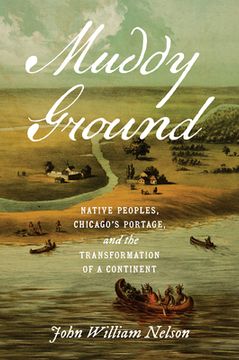Share
Muddy Ground: Native Peoples, Chicago's Portage, and the Transformation of a Continent (in English)
John William Nelson
(Author)
·
University of North Carolina Press
· Paperback
Muddy Ground: Native Peoples, Chicago's Portage, and the Transformation of a Continent (in English) - Nelson, John William
$ 28.38
$ 29.95
You save: $ 1.57
Choose the list to add your product or create one New List
✓ Product added successfully to the Wishlist.
Go to My WishlistsIt will be shipped from our warehouse between
Wednesday, May 29 and
Thursday, May 30.
You will receive it anywhere in United States between 1 and 3 business days after shipment.
Synopsis "Muddy Ground: Native Peoples, Chicago's Portage, and the Transformation of a Continent (in English)"
In early North America, carrying watercraft--usually canoes--and supplies across paths connecting one body of water to another was essential in the establishment of both Indigenous and European mobility in the continent's interior. The Chicago portage, a network of overland canoe routes that connected the Great Lakes and Mississippi watersheds, grew into a crossroads of interaction as Indigenous and European people vied for its control during early contact and colonization. John William Nelson charts the many peoples that traversed and sought power along Chicago's portage paths from the seventeenth to the mid-nineteenth centuries, including Indigenous Illinois traders, French explorers, Jesuit missionaries, Meskwaki warriors, British officers, Anishinaabe headmen, and American settlers. Nelson compellingly demonstrates that even deep within the interior, power relations fluctuated based on the control of waterways and local environmental knowledge. Pushing beyond political and cultural explanations for Indigenous-European relations in the borderlands of North America, Nelson places environmental and geographic realities at the center of the history of Indigenous Chicago, offering a new explanation for how the United States gained control of the North American interior through a two-pronged subjugation of both the landscapes and peoples of the continent.

